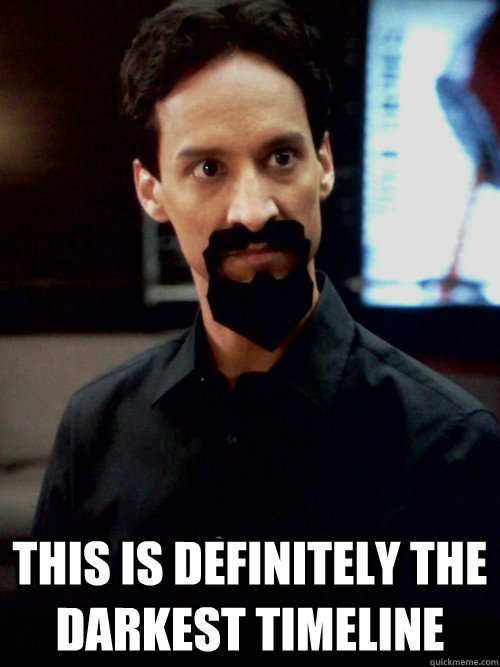With the mobile space red hot and everyone seeing the virtues of mobile development–small teams, small budgets, and fast turnaround–we’re having more and more people come to us looking for PR support for their mobile titles. However, PR in the mobile space is completely different from PR in the gaming space, and we’ve found that developers expecting to get major coverage from an announcement press release and a few screenshots wind up disappointed. In this post, we’ll talk about the challenges of mobile-gaming PR, finding the right audience for your game and some ways to increase the impact of your PR efforts.
Finding Your Audience
We’ve found, and clients have confirmed, that mobile users are more likely to choose something based on it showing up in the App Store Top 10 than careful tracking of review sites and monitoring the “hot new thing.” By and large, mobile gamers are impulse driven. They’re bored on the train or on the can at work and looking for something to pass a few minutes, rather than following the development progress of a game for months on end the way people follow Call of Duty.
Mobile gamers are much more likely to listen to word of mouth from friends and what’s highlighted on the App Store or Google Play. If your budget or time is limited enough that you can only do one thing, your time is better spent working on your relationship with Google and/or Apple through whatever voodoo they require, and your money is better spent on advertising and services like Tapjoy that provide incentives for download.
According to a recent study, your app needs to be making $47,000 per day to crack the Top 10. It’s quite a steep mountain to climb and, in sheer back-of-the-envelope terms, that’s about 45-50,000 sales per day depending on your price point. If a single PR campaign from a single rep consisting of a few press releases and screenshots could drive 50,000 sales per day, we wouldn’t be giving away our secret sauce on our blog because we’d be in Tahiti on a very, very large boat suntanning.
The Mobile Press
The mobile gaming press is smaller than traditional games media in size–there are only a handful of sites and writers that cover mobile–and in circulation, meaning the mobile press doesn’t have the huge number of readers that PC and console sites have. We’ve found that mobile gamers, by and large, don’t consider themselves “gamers” in the sense of people that view gaming as a lifestyle. They’re people who happen to play video games or gamers that mainly play other platforms but also have smartphones so why not?
Furthermore, the mobile gaming sites are absolutely deluged with press releases, especially since the relatively low barrier to entry means anyone with a few hundred dollars can call themselves a “mobile developer” and announce their “upcoming game,” even if it doesn’t exist. There’s little to no interest in updates to games that are already out, even if the updates are fairly substantial; the exception to that would be a massive franchise like Angry Birds, but if you have an Angry Birds-level success on your hands, you don’t need this article. While players may be excited about your new expansion, painful experience has shown us that the press sees something that came out a year ago and moves on to the next thing in their inbox.
Breaking through to the mobile press, even more than the traditional gaming press, requires a compelling hook. A hook can be awesome gameplay–have a video ready or, even better, a playable preview build–or a team with a very cool story or, preferably, both and an awesome, good-looking new idea that hasn’t been seen before. And yeah, graphics matter. People will go for stylistic or stylishly retro or intriguing–it doesn’t have to be cutting-edge Unreal Engine 4–but we’ve found writers will ignore a game that’s mediocre or bad looking, even if it’s an otherwise good game.
Setting Your Goals And Expectations
One of the problems we run into as a PR agency working in the mobile space is hazy goals from our would-be clients. They want to send a press release because a press release is something companies do, not because they want to raise visibility or increase awareness. Another common misconception is that a press release and review push is a magic bullet and we’ll magically lift things onto the Top 10 of the App Store with a short campaign.
Unfortunately, our existing clients have found that PR campaigns on their own do not lead to massive sales or downloads. Mobile users are not as reliant on the press serving as tastemakers–it’s 99 cents to try a mobile game versus 50 or 60 dollars–and simply appearing on a site via press release or even review is not the path to mobile riches.
Think of a PR campaign as accompaniment to the meat of your marketing campaign. We can get reviews on sites if your game is particularly compelling and build interest that way. We can get your videos in circulation and make sure people see them. We can spread the word through the avenues available to us, however, PR is not a magic bullet and cannot save a mediocre or terrible game. This is especially true in mobile, where there’s little tolerance for a broken-but-interesting game of the sort that sometimes find a home on the PC or consoles.
A good PR campaign can amplify your message, but it will generally not drive sales on its own.
Planning Your Campaign
Where PR can help is as part of your wider marketing and promotional strategy. Your focus needs to be on showing that your game exists, why it’s cool, and why it’s different from the massive piles of mobile games already out there. While that’s the standard for dealing with any gaming press, it’s even more critical in mobile, where the barrier to entry is quite low and the number of players in the space is already high and getting higher every day.
In our interactions with the mobile press, the one thing that comes out more than anything is they want to know the game is an actual game, not just another announcement and it’s hopefully playable. Other PR Pro Tips articles have harped on videos, but prepare for more harping. In mobile, writers only care about product announcements and screenshots if it’s a big license, a sequel to an existing title, or the next big game from a much-loved developer.
If you’re fortunate enough to be making Angry Birds: Arkham Asylum, then your announcement will be covered widely. If it’s anything else, screenshots and a description probably aren’t going to cover it. The mobile press wants to see the game in action, even better if they can get their hands on a build and see for themselves.
In brief, your videos should show what the game is, why it’s cool, and what it brings to the table that existing games do not. In the traditional gaming press, having a different spin on a classic formula or slightly dated graphics makes things challenging but not impossible. The mobile press can be much more wrapped up in The New and The Shiny. If your product is not changing a genre or showing off some new mechanic, getting anything resembling traction is going to be extremely painful.
Planning Your Timeline
In addition, only make your announcement toward the end of the game’s development cycle when a playable build is available or you have a definite date when a playable build will be available. This shows you’re more serious than the guy in his bedroom announcing a “game” that will never come out and automatically puts you a step ahead of a huge chunk of the announcements in the average writer’s inbox.
In dealing with our clients, getting a playable build is super important since press want to do their own videos, features, etc., however, for mobile, it’s critical. Offering them a game that’s playable is much more likely to stoke their interest than yet another announcement, and it offers those in need of content the chance to produce some of their content rather than relying on you (or us) to provide them videos and screenshots down the line.
The existing mobile press also doesn’t have the wider infrastructure that mainstream gaming journalism does. Very few sites–with some exceptions–are interested in previews, features, making-ofs, game art profiles or write-ups, and the kind of articles that can support a long run-up or buzz-building campaign. A truly exceptional game may merit some or all of those, but for most mobile titles, the journalistic infrastructure simply doesn’t exist and writers aren’t interested in them.
When planning your mobile campaign, PR might be able to get you some preview interest based on your video and other materials and then release announcement and review coverage if your game is sufficiently interesting. However, most mobile games are not going to get a sustained campaign and the usual slow reveals unless they are exceptionally interesting. Expect, at most, three PR “bursts” of interest… if you’re lucky.
Post-launch, interest from the press falls off completely. Very few games merit coverage for major patches and expansions–though exceptions for huge titles always exist–so the post-launch burden for getting the word out will have to fall on your non-PR channels like your social media pages and accounts (Twitter, Facebook, etc.), your game’s community, and whatever avenues you’ve managed to cultivate. Even major overhauls for bestselling games have, in our experience, failed to merit more than cursory coverage.
Doing PR for mobile and running your own campaigns is more about quick strikes with lots of info than doing extended teaser campaigns and slowly rolling out information. While PR can and should be part of your marketing campaign, PR on its own is probably not going to lead to a significant number of downloads or purchases. As always, set some clear goals, deliver a lot of assets and information upfront, and do everything you can to prove the game is a real project, is interesting, and is worthy of press attention.
Or you can just hire us, because doesn’t that all sound like a huge hassle?
TLDR Tips
- A single PR campaign can’t boost you into the App Store Top 10 on its own
- The mobile press is absolutely deluged with announcements every day
- To stand apart, provide meat: hands-on builds and/or extensive video gameplay and/or a compelling team story.
- Preferably all of those
- Expect, at most, three “pops” of PR interest: Preview, launch, review





